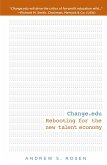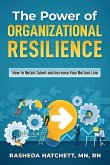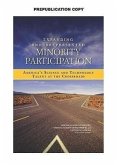Research findings make it clear that human capital--the capacity of schools and districts to recruit, develop, and retain top talent--is one of the most important levers we have for improving school effectiveness and student achievement. However, educators, district leaders, and policy makers are just beginning to recognize that strengthening human capital should be their top priority--and to act on that recognition. Drawing on a two-year initiative by the Aspen Institute Education and Society Program, Teaching Talent identifies the elements of a robust human capital strategy in education and offers a comprehensive, visionary framework that weaves these elements together. "We know that most school districts operate in a short-term reactive environment. Few have a strategic vision of the core problems of practice that merit their sustained attention, much less a focused, data-driven plan of action for solving them. This book, with its sharp focus on coherent systems that demand commitment from people at every level in schools and school systems, provides frameworks for new ways of thinking about sustainable transformation." -- Anthony S. Bryk, president, The Carnegie Foundation for the Advancement of Teaching "If we want better student outcomes in public education, we need to improve how we recruit, retain, and reward our most valuable asset--our teachers. Unfortunately, many school districts are clueless about how to effectively address these core issues. This book provides practical, concrete guidance on how to do it right. For the sake of our children, let's hope it's widely read and followed." -- Joel I. Klein, chancellor, New York City schools "It has become clear in recent years that that the best way to improve learning outcomes for kids is to give them exposure to great educators. This book does an outstanding job of clarifying the challenges we must overcome on human capital, and it is a critical primer for anyone seeking to run a great urban school district." -- Timothy Daly, president, The New Teacher Project "Salaries and benefits are the largest expenditure in any school district. All of us must manage our human capital more effectively to leverage these expenditures and increase student achievement. This book addresses four major elements: pathways into teaching, induction and tenure, leadership opportunities and performance management, and compensation and rewards. If seamlessly integrated, they constitute a comprehensive management blueprint that will benefit students and adults." -- Peter Gorman, superintendent, Charlotte-Mecklenburg Schools, Charlotte, North Carolina Rachel E. Curtis works with school systems, foundations, higher education, and education policy organizations on district improvement strategy, leadership development, and efforts to make teaching a rewarding career. Judy Wurtzel is deputy assistant secretary for planning, evaluation, and policy development at the U.S. Department of Education and the former codirector of the Aspen Institute Education and Society Program.








